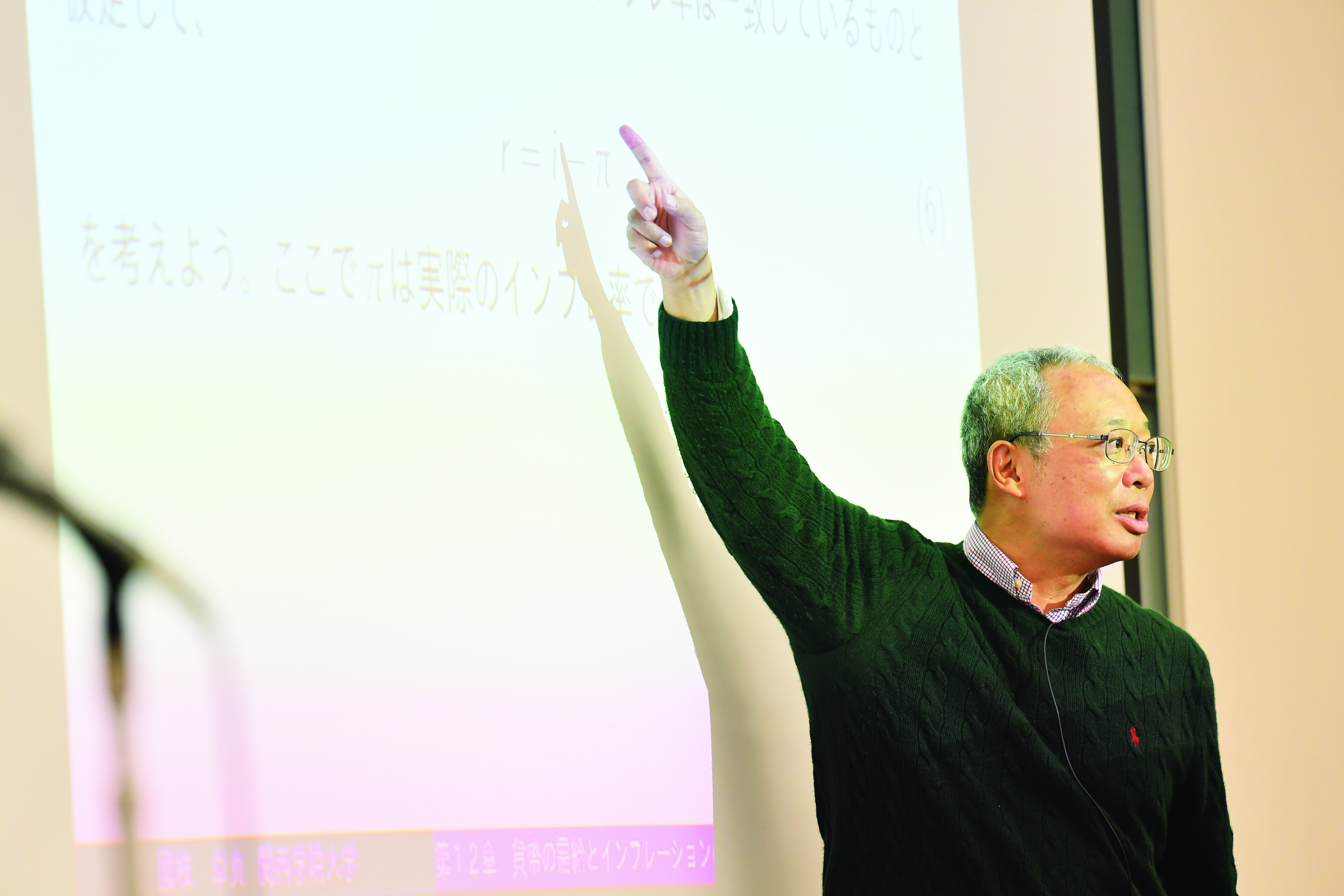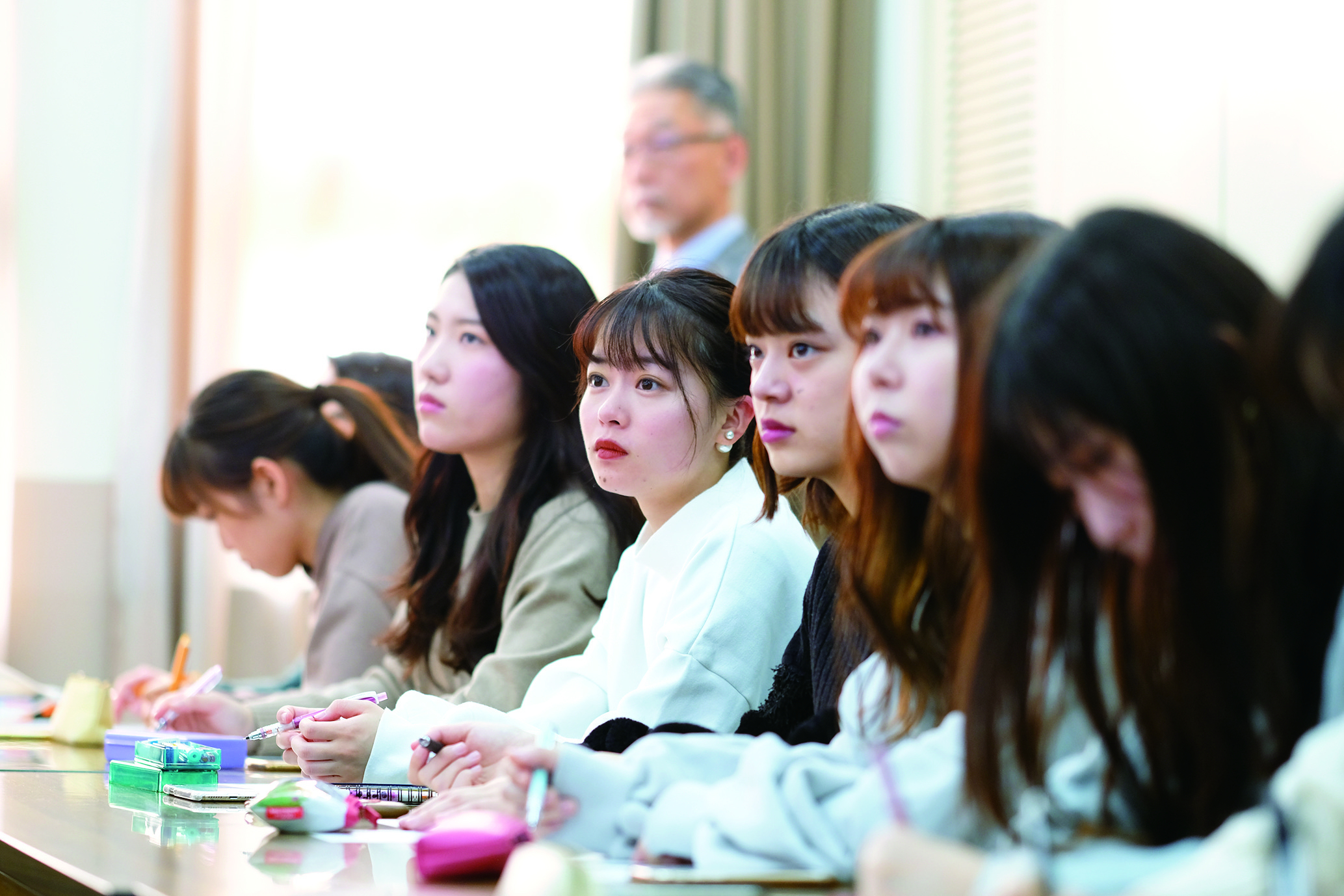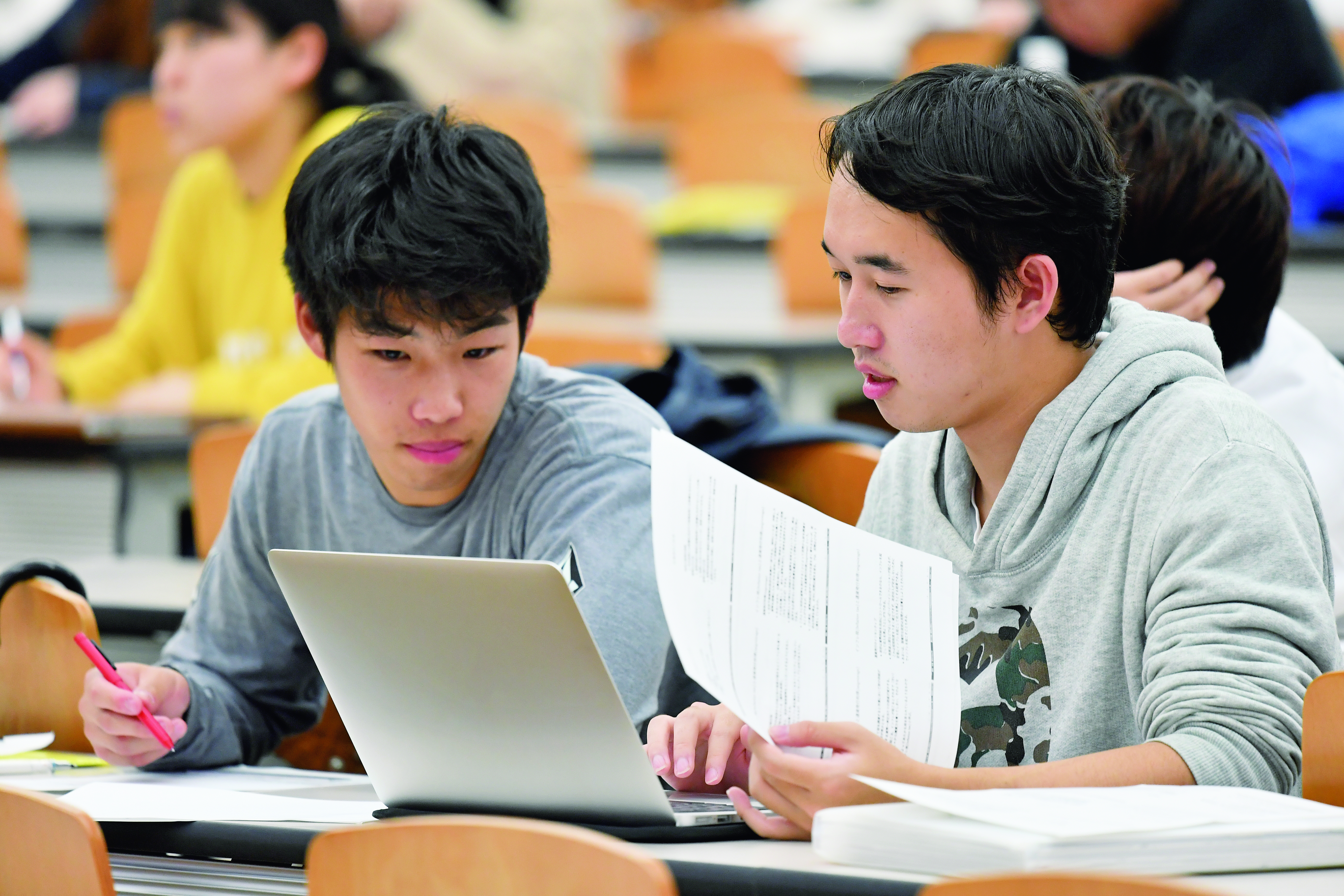School of Economics

Emphasizing Ethical Economic Thinking
The School of Economics dates back to 1934, when the faculty of commerce and economics welcomed 123 undergraduate freshmen to Kwansei Gakuin University, which had received its charter as the fourth Christian university in Japan two years before. In 1944, the educational and research activities of the faculty were brought to a halt in compliance with Japanese government wartime policies. Their activities resumed, however, shortly after the end of WWII, and in 1946, the School of Economics was given its present name.
The School’s energetic research activities are at the forefront of a variety of fields, which continue to inspire their teaching of such core subjects as micro and macroeconomics as well as applied subjects for undergraduates and graduates alike. In addition, the School has a number of faculty members working on humanities (e.g., theological, linguistic and literature studies) and thus its economic education for undergraduates is enriched to be a liberal-arts education as a whole. Furthermore, the helpful and caring administration staff is dedicated to the School’s success by supporting the faculty and all of the undergraduate and graduate students. The School of Economics boasts a long tradition and, at the same time, a progressive atmosphere. It aims to contribute much to society through both its research and education.
Unique Features of the School
- Students acquire economic thinking through theory, history, and data
- Teaching assistant system in which graduate students teach junior students
- Matching student interests with seminars in the early stages
- Acquiring foreign languages in addition to the required English to gain multicultural understanding
- Exchange with other universities and fieldwork abroad







